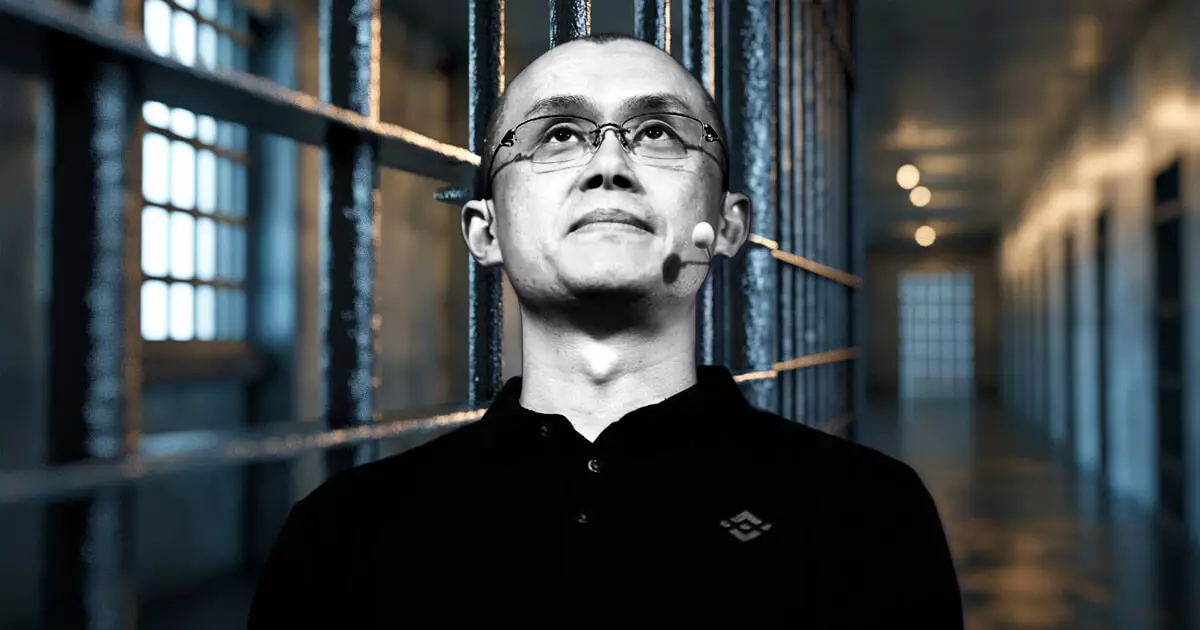Changpeng Zhao, the co-founder of Binance, has become a pivotal figure in the world of cryptocurrency, but his journey has not been without its share of turbulence. Recently announced to be released from US custody on September 29, Zhao’s legal woes began in earnest in November when he, along with Binance, conceded guilt to violating federal laws in the United States. This marked a significant turn in the trajectory of a platform that once symbolized the boundless potential of decentralized finance.
Zhao’s legal challenges primarily stemmed from insufficient implementation of anti-money laundering protocols that are mandated under the Bank Secrecy Act. Critics point out that the lack of effective governance allowed Binance to function as a facilitator for potentially illicit transactions. The ramifications of these shortcomings are substantial, leading to a hefty financial penalty of $4.3 billion for Binance and a personal fine of $50 million levied against Zhao. Despite stepping down from his CEO position, Zhao reportedly maintains a staggering 90% ownership of the company, raising questions about the corporate governance structure within Binance.
Continuing Legal Implications for Binance
While Zhao’s individual troubles appear to be on a path to resolution, Binance itself remains entangled in a web of legal complications. The US Securities and Exchange Commission (SEC) has taken the initiative to file an amended complaint against the exchange, emphasizing its belief that Binance has breached federal securities laws. Notably, the SEC posits that Binance is not merely a platform for cryptocurrency transactions but plays an active role in shaping market perceptions by propagating information from issuers and influencers.
The SEC’s allegations are substantive and critical, highlighting that Binance does not just serve as a passive facilitator for crypto trading, but actively promotes the assets it lists. Central to these claims is Binance’s token, BNB, which the SEC asserts was marketed and sold as a security. This assertion draws on the expectation among stakeholders that BNB would appreciate in value, driven by actions and communications from Binance and its affiliates. Interestingly, the SEC has chosen to resurrect these claims despite a prior court ruling that dismissed allegations related to the secondary sales of BNB by third parties.
Future Implications: A Shift in the Crypto Landscape?
The ongoing legal challenges facing Zhao and Binance may signal a turning tide in how crypto exchanges are regulated. With prominent entities like the SEC ramping up scrutiny, analysts speculate that this could usher in stricter regulatory measures across the crypto industry. Zhao’s impending release could signify a new chapter not only for him personally but also for Binance as it navigates its remaining legal hurdles.
The saga of Changpeng Zhao serves as a cautionary tale about the regulatory risks embedded in the rapidly evolving world of cryptocurrencies. As he prepares to re-enter society, the broader implications of Zhao’s and Binance’s legal battles could foretell significant changes for the future of cryptocurrency trading platforms and their governance. The financial repercussions and regulatory scrutiny may reshape the landscape for other players in the sector, highlighting the importance of compliance in an era where the stakes are incredibly high.

